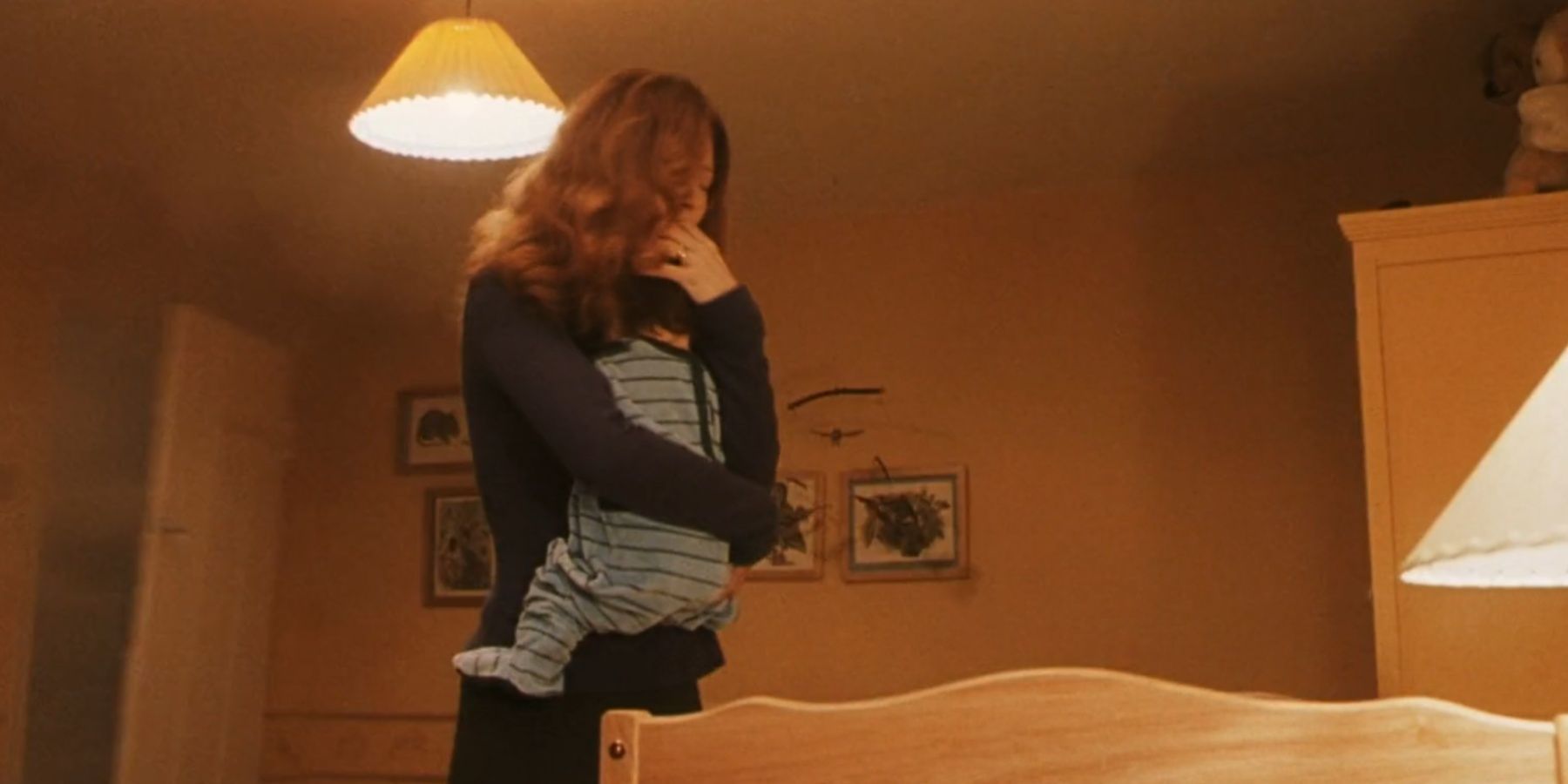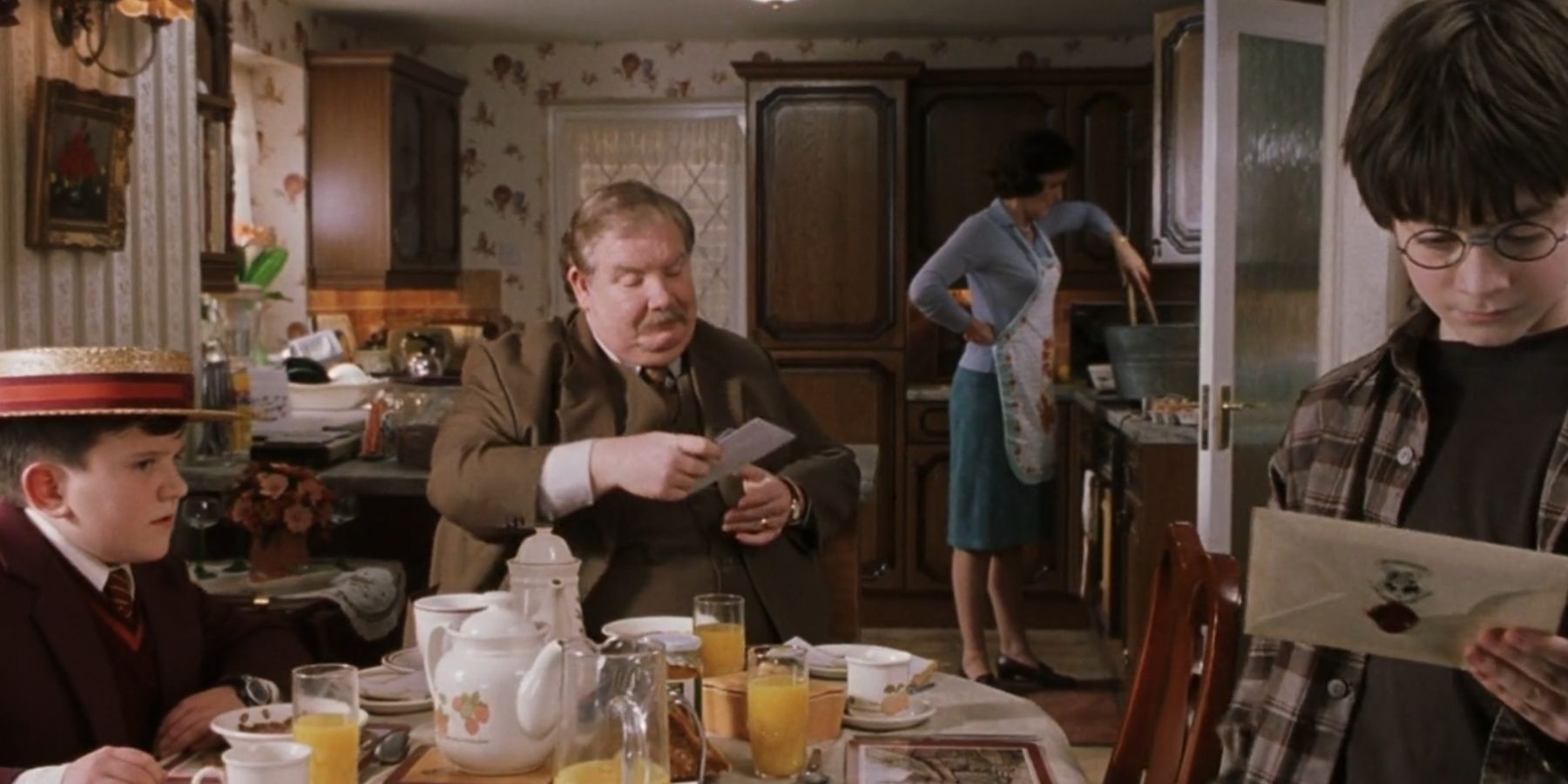
Unveiling the Mysteries of the Harry Potter: Bond of Blood Charm

A closer look at the Bond of Blood charm in Harry Potter series, exploring Lily Potter's sacrificial protection and Dumbledore's role in Harry's connection to Petunia
Harry Potter spent the first decade of his life under the care of his late mother's sister, Aunt Petunia. In the initial Harry Potter film, Petunia resided with her husband, Vernon Dursley, and their son, Dudley, at Four, Privet Drive. Unfortunately, Harry faced mistreatment at the hands of the Dursleys and felt like an unwelcome addition to their family. He was relegated to the tiny cupboard under the stairs as his bedroom and constantly punished for trivial reasons. Prior to Hagrid's arrival, Harry remained oblivious to his magical heritage. His aunt and uncle treated him poorly, and Dudley often harassed him. On one occasion, Vernon's sister, Marge, suggested abandoning Harry at an orphanage, but Vernon claimed that he took him in solely out of the goodness of his heart.
As illustrated in the Harry Potter movies, Petunia and Vernon harbored a deep disdain for Harry, yet reluctantly allowed him to live with them. Despite the fact that the Dursleys were non-magical (Muggles), Harry, on the other hand, was a wizard residing in their midst. Unbeknownst to him, his parents had perished in the First Wizarding War, and he was deceived into believing that they died in a car accident until his eleventh birthday. Petunia and Vernon sought to suppress Harry's magical abilities, keeping him ignorant of Hogwarts and the truth behind his parents' sacrifices. Eventually, Harry discovered his true identity, learned about Lily's selfless act, and comprehended the necessity of his yearly visits to his aunt's "home," despite the fact that there were numerous wizarding families who would have gladly taken him in.
Lily Potter's Sacrificial Protection
In the concluding scene of Harry Potter and the Sorcerer's Stone, Albus Dumbledore pays a visit to Harry in the Hospital Wing. He reveals that Professor Quirrell does not possess the Stone anymore and it has been destroyed. The young wizard, Harry, proceeds to raise some questions to his professor, starting with, "Voldemort claimed that he only murdered my mother because her actions obstructed his plan to kill me. However, what was the reason for him wanting to kill me in the first place?" While Dumbledore withholds some information, he does answer Harry's inquiry about why Quirrell was unable to physically harm him:
The reason Voldemort failed to comprehend is that your mother sacrificed herself to save you. Love is something Voldemort cannot comprehend. He failed to realize that the profound love your mother felt for you has left its own indelible mark. It is not a physical scar or visible sign, but rather an enduring protection that remains with us even when our loved ones are no longer present. This protection becomes a part of you, embedded within your very being. Because Quirinus Quirrell, consumed by hatred, greed, and ambition, sharing his soul with Voldemort, could not bear to lay a finger on someone who bore the indelible mark of something so pure. It was excruciating for him to touch someone marked by such profound goodness.
In the Harry Potter series, Lily's selfless act of sacrificing herself for her son's life is depicted as an ancient magical protection known as the Sacrificial Protection. This act of love ultimately caused Voldemort's Killing Curse to rebound, leading to Harry being known as "The Boy Who Lived."
In the fifth book, "The Order of the Phoenix," Dumbledore delves into the effects of the Sacrificial Protection. Specifically, in chapter 37 titled "The Lost Prophecy," Dumbledore explains his reasoning behind certain decisions concerning Harry's life. He reveals that fifteen years prior, upon seeing Harry's scar, he theorized a potential connection between the infant and Lord Voldemort. Dumbledore also discusses his choice to have Snape teach Harry Occlumency instead of doing it himself, as he believed it would prevent Snape from using Harry as a means to spy on him. Finally, Dumbledore discloses the reason why he left Harry with his aunt and uncle, shedding light on his decision-making process.
Dumbledore Condemned Harry To Petunia's And Bond of Blood Charm
In "The Lost Prophecy" of Harry Potter and the Order of the Phoenix, Dumbledore acknowledges that he knowingly condemned Harry to a miserable childhood by leaving him with Petunia. After the attack at Godric's Hollow, Dumbledore realized that Voldemort would return to kill Harry and that his protective spells would fail if Voldemort regained full power. To counter this, Dumbledore made the decision to protect Harry with ancient magic that Voldemort despises and underestimates: the fact that Lily sacrificed herself to save Harry. This raises questions about the significance of Lily's sacrifice and how it granted Harry enduring protection. Additionally, Dumbledore reveals that this protection runs through Harry's veins, which is why he chose to place the infant with Petunia, Lily's only remaining relative, instead of a Wizarding family. By accepting Harry into her home, Petunia sealed the charm that Dumbledore had placed upon him. "Your mother's sacrifice made the bond of blood the strongest shield I could give you," Dumbledore discloses in Harry Potter and the Order of the Phoenix.
Dumbledore explains that although the Dursley household was a miserable place, it served as a safe haven for Harry. This was because Voldemort, the most powerful wizard, could not harm him there due to the presence of Lily's blood. Voldemort had shed Lily's blood, but it continued to live on in Harry and his sister. From that day until he turned seventeen, Petunia's blood provided protection for Harry. This is why it was necessary for him to return to Four, Privet Drive at least once a year. As long as Harry considered it home, Voldemort could not harm him, as clarified by Dumbledore in the fifth installment of the Harry Potter series. In essence, in 1981, after Lily sacrificed herself and the Sacrificial Protection came into effect, Albus Dumbledore placed a charm on Harry known as the Bond of Blood. By allowing Harry to reside with Petunia, who was a blood relative of Lily, the charm was sealed. In simple terms, Harry's life depended on his regular visits to Aunt Petunia's house.















